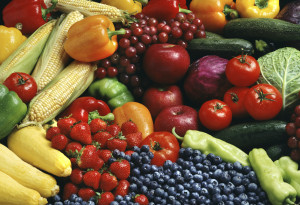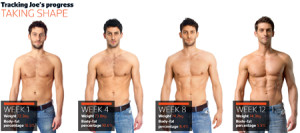How to stop getting fat over Christmas!
Want to stay Lean over Christmas??
As you may know this time of year is when APA are busy helping some of our Professional Tennis players prepare in their pre-season.
But equally it’s also a time where even athletes have a lot of temptations as we approach the festive period with lots of family gatherings and parties. So it’s important they keep on top of their nutrition. If you are an athlete in training over the Christmas period, or are a normal person just looking to watch what you eat over Christmas then this post is for you.

Be Strategic with your Starches:
I’ve previously talked about the APA principles of nutrition HERE known as the 6 Pillars of Nutrition which are based on the work of Dr. Mike Rousell.
A big part of having success in maintaining lean mass is related to your strategic use of starches and so paying close attention to how much, what type and when you have carbohydrates will be key this Christmas.
So how much Carbohydrate does the Government recommend?

These guidelines are based on Recommended Daily Allowances for a typical Adult male, advised to consume 2000 calories per day.
In caloric terms 270g of Carbohydrate equates to 1080 calories, or over 50% of your energy needs
Fat: 70 grams = 630 calories
Protein: 50 grams = 200 calories
Carbohydrates: 270 grams = 1080 calories
Fibre: 24 grams = 48 calories
Total: 1,958 calories
For an athletic population on a Training Day the RDA might look a little different:
It has previously been recommended to consume around 5g/kilogram of body mass of Carbohydrates during periods of high volume training.
Guideline Daily Amounts (GDA) for average athletic male adult (80kg male) 3000 kcal
Fat: 70 grams = 630 calories
Protein: 160 grams = 640 calories
Carbohydrates: 400 grams = 1600 calories
Fibre: 24 grams = 48 calories
Total: 2,918 calories
What do the Experts say?
These days experts are discouraging such large intakes of carbohydrates for athletic populations, with a bit more emphasis on a more balanced intake of protein and carbohydrates. Athletes might have up to 300g protein and 300g carbohydrate per day.
Dr. Mike Rousell has recommended to have around 60-80g (up to 100g in large athletes) per Starch meal on training days. These meals will take place at breakfast, during workout shake, and in two meals following the workout. So you’re looking at recommendations of about 240g-400g on training days depending on size of athlete.
On non-training days he advises a starch meal at breakfast (60-80g) and five further non starch meals at all other times (20g) so around 180g per day on non-training days.
He also advises around 50g of protein per meal, eaten at each of the 6 meals in the day.
But don’t just count calories!!!!
If you use Apps like My Fitness Pal to count how many calories you eat but you don’t pay attention to what type or when you eat them you’re missing a big piece of the puzzle. For a great blog on why ‘A Calorie is Not A Calorie’ click the link. This blog talks about calorie counting but also when to have Carbohydrates.
What type of Carbohydrates are best?
There are two main types of Carbohydrates:
1. Whole grains (starches): also know as ‘complex carbohydrates:’
Include foods such as porridge oats, wheat based cereals, rice, pasta and potatoes and can be consumed when the demand for energy from the body is high. They release their energy more slowly.
Whole grain
-A whole grain is a cereal grain that contains the germ, endosperm, and bran, in contrast to refined grains, which retain only the endosperm.(Wikipedia).
Vegetables– are also a form of complex carbohydrates but can be eaten in abundance because they contain only around 26 calories/100g so should be eaten at lunch and dinner!
2. Simple carbohydrates:
–Simple carbohydrates are sugars. All simple carbohydrates are made of just one or two sugar molecules. They are the quickest source of energy, as they are very rapidly digested. Think sports drinks, confectionery, cereal bars, and fruit.
Fruit– is technically a simple carbohydrate — but it also contains fibre, vitamins and antioxidants. The fibre in fruit helps slow the digestion of carbs, which is why your blood sugar doesn’t spike as much after eating fibre-filled fruit like it does when you gulp down a fizzy drink or a chocolate bar.
As you will see below you can eat all of the different types of carbohydrates but it’s about eating them at the right time!
When should you eat Carbohydrates?
Most experts now agree that nutrient timing places a big role in weight management. It is generally agreed that the best time to eat carbohydrates is:
1. Breakfast- complex (60-80g)
2. Snacks- simple (fruit)
3. Workout-simple (50g workout shake)
4. Post-workout Meal-simple (within 30 minutes) and complex (60-80g within 2 hours)
Training days:
So on training days you will have complex carbohydrates at breakfast and in one or two meals following your workout.
Non-training days:
On non-training days you just have complex carbohydrates for breakfast!!
The rest of the day can be fruit for a snack and vegetables at lunch and dinner!!
The key take away message is to make sure you are strict with your intake of complex carbohydrates and simple sugars on non-training days!!!!! It really is the key to stay lean over Christmas. If you want to pig out a bit more on Carbohydrates then make sure you do some training before your Christmas dinner.
Want to lose body fat???
If you want to see how I did this when I lost 9% body fat check out the 3 month Fat loss training programme HERE, HERE and HERE
A big part of my own success in stripping body fat was related to my strategic use of starches. This is a more extreme version of carbohydrate manipulation but the principles are the same. The only difference here was I made a decision to remove complex carbohydrates completely on training days for the first two weeks. This is not advised for athletes who need to complete high training volumes and high intensity exercise. But it can be applied at specific times when fat loss reduction is required.
Good luck with your eating over Christmas!



